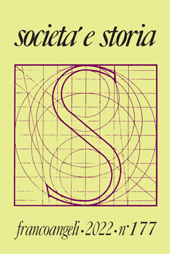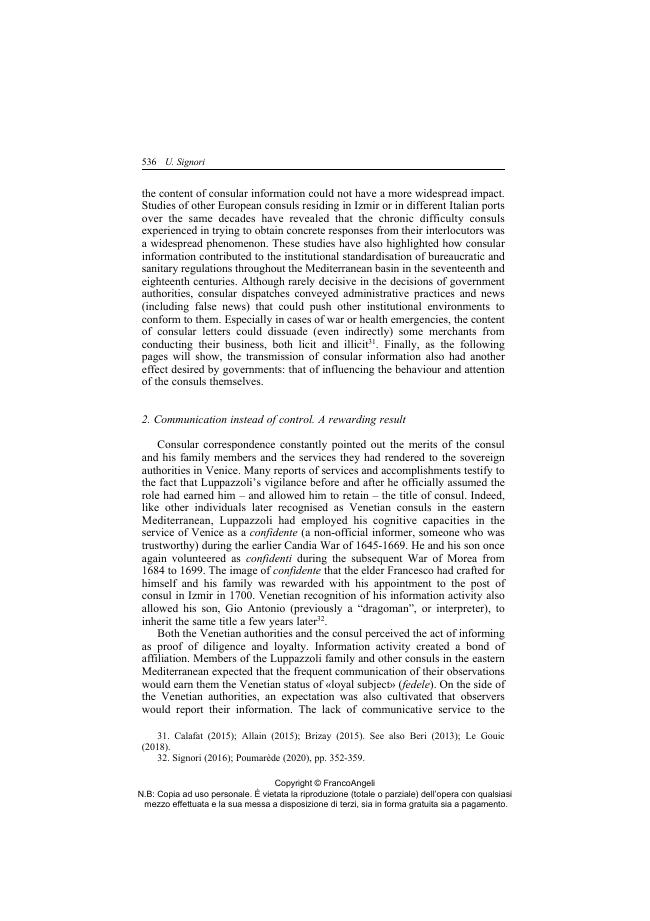Between Misery and Reward : The Culture of Vigilance in the Experience of a Venetian Consul during the Early Modern Period
P. 526-545
La partecipazione dei consoli alla sorveglianza statale non sembra giustificare l'esistenza stessa dei consoli veneziani a Smirne tra la fine del Seicento e l'inizio del Settecento. La loro attività informativa, infatti, non contribuiva a produrre un sapere usato poi dal potere politico per prendere decisioni, giudicare o punire i comportamenti illegali. [Testo dell'editore]
Consular participation in state surveillance did not seem to be the basis of the legitimacy of Venetian consuls in Izmir in the late seventeenth and early eighteenth centuries. Indeed, their activity as informants did not contribute to producing the knowledge that was then used by those in power to make decisions, or to judge and punish illegal behaviour. By placing the Izmir consuls in a broader context in which the state rewarded the participation in a set of specific tasks of as many private individuals as possible, this article reassesses the oftendebated and much-contested efficacy of consular information activity.
Rather than providing the Venetian authorities with reliable and indispensable information, this article argues that consular vigilance defined a bond of loyalty and mutual expectations between these consuls and Venice. Far from resulting in superior central control, political power projected its authority onto the narratives and behaviour of consuls and potential informers. [Publisher's text]
Ist Teil von
Società e storia : 177, 3, 2022-
Artikel aus derselben Ausgabe (einzeln erhältlich)
-
Informationen
ISSN: 1972-5515
KEYWORDS
- Cultura della vigilanza, consoli veneziani, Smirne ottomana, Repubblica di Venezia, età moderna, aspettative statali
- Culture of vigilance, Venetian consuls, Ottoman Izmir, Republic of Venice, early modern period, state expectations



